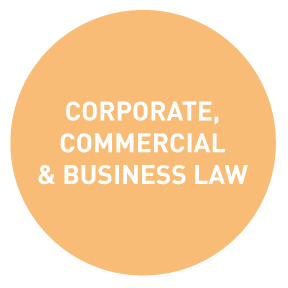AREAS OF PRACTICE
CORPORATE, COMMERCIAL & BUSINESS LAW
We can help you set up your new business, buy or sell, or restructure an old one, arrange for financing, or help you with any other aspect of your professional and business needs. We work with proprietors, partnerships, corporations and joint ventures from initial organization to forming international business relations. There are many types of business organizations. A proprietorship is the simplest type. Here the business owner carries on a business in their own name or another name that is registered with the provincial corporate registry. The proprietor may hire employees, but there may only be one owner of the proprietorship. This type of business is very inexpensive and the owner needs only file one tax return for both him/herself and the proprietorship. However, a sole proprietor is personally liable for any of the proprietorship's business obligations or debts, and there are certain tax advantages available to companies, that a sole proprietor cannot take advantage of. A partnership is another business structure. It arises where two or more people run a business together,whether they have a written partnership agreement or not. This relationship is governed by the British Columbia Partnership Act. A partnership is also an inexpensive and simple business structure, and again each partner need only file their own taxes; no separate return is needed for the partnership. However, in most cases all partners are liable for the partnership's obligations and for the actions of every other partner. There is a presumption that any partner can contract on behalf of all other partners. Also, there are certain tax advantages available to companies, that a partnership cannot take advantage of. Partners can also hold limited partnerships whereby limited partners can contribute capital, but no managerial or business input into the partnership. Limited partners hold limited liability from the actions of other partners and the partnership as a whole. A company is the most complex business structure and must be incorporated. Upon incorporation, the company becomes an individual business entity, separate from its owners. Incorporation can be either provincially or federally, though a federal company must register in each province in which it carries on business. This is the most highly regulated and expensive business structure, but it offers numerous tax advantages, flexible ownership options, and limited liability of its members. There are also disadvantages, however, in that it can be expensive to create and run, as there is a rigid statutory scheme to be followed, with annual filings, and separate tax returns for the corporation.


